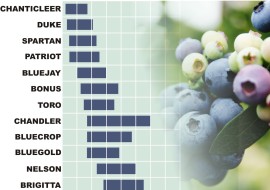Chinese wolfberry, which many of us associate automatically with its fruits name – GOJI BERRIES – has been increasing its popularity since many years around the world. All this due to its copious pro-health properties.
Goji fruits:
- contain high amounts of vitamin C. 100 g of dried fruits have 2500mg of this substance – which places the plant at the 3rd top rich in vitamin C natural source.
- contain vitamins B1, B2, B6 and E, as well as 11 minerals and 22 trace minerals
- delay aging processes and help in cells growing and damaged cells regeneration
- strengthen bones and joints
- improve eyesight
- strengthen and regulate digestive system activities
- boost weight loss
- show anticancer influence
- improve our memory
- improve our spirits and reduce tiredness
- are effective in liver detoxication processes even in case of hard chemical poisons
- in Chinese medicine are used to heal many illnesses, to name just a few: kidney diseases, heart problems, lung illnesses, or even rheumatic problems
- are advised for people of every age, except for pregnant women and nursing mothers. Goji berries are nartural suplement of diet providing us with wellness and longevity
Chinese wolfberry is being cultivated mainly in Ning-xia province. Its shrub reaches the height of even 3m, it has loose branches covered with thorns and very pretty purple-violet flowers.
For thousands of years, Chinese wolfberry has been highly valued for its copious pro-health properties. In England it is widespread since 18th century as Duke of Argyll’s Tea Tree and it is considered as dessert and decorative plant. In 21st century, Goji berries became highly popular among healthy food enthusiasts from all around the world.
Goji fruits are edible when fully ripened. Some varieties of Solanaceae, including Chinese wolfberry, contain in unripened (green) fruits some solanine, which may cause, among other things, acute alimentary poisons.
It is important to remember that only ripened Goji fruits may be picked and eaten.




